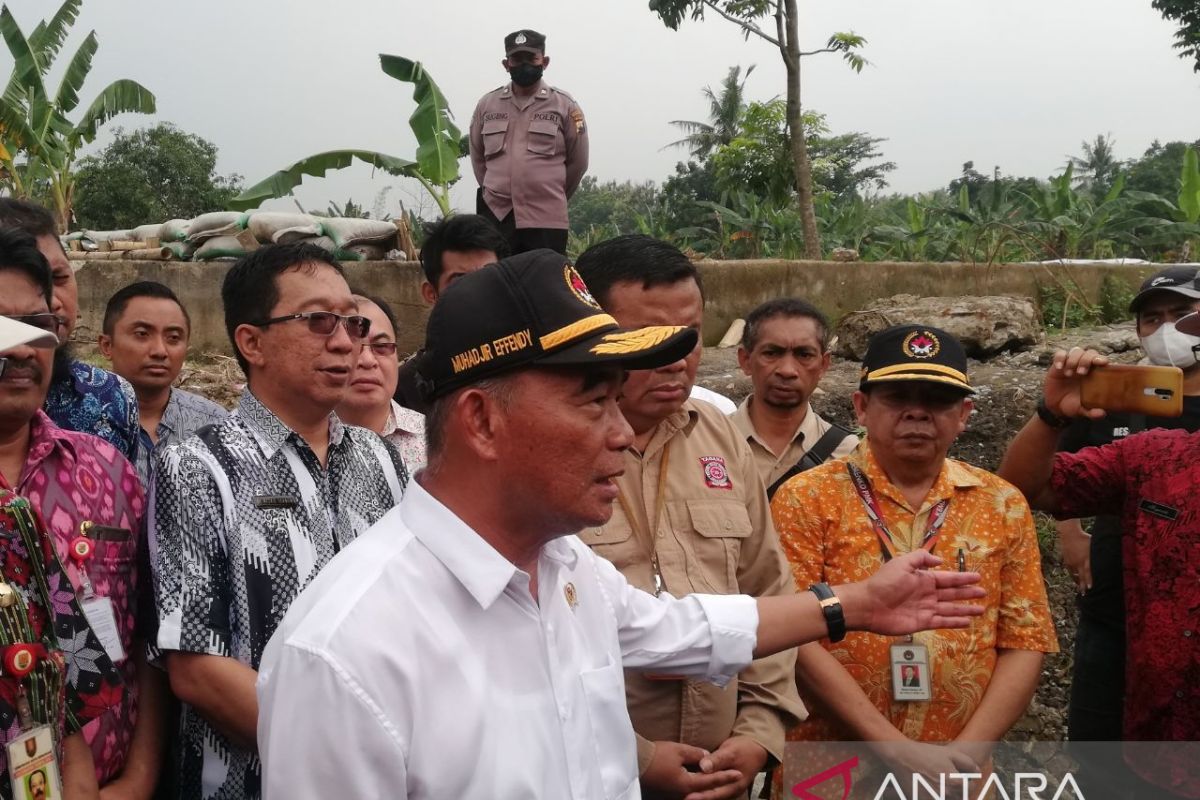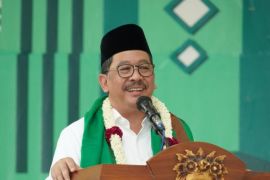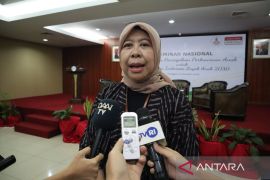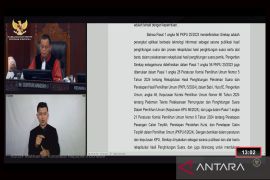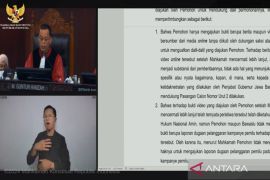We hope the Constitutional Court's decision is the bestSemarang, Central Java (ANTARA) - Coordinating Minister for Human Development and Cultural Affairs Muhadjir Effendy stated that the Constitutional Court (MK) has cleared any uncertainty regarding the legal view on interfaith marriages following its recent decision on the matter.
"(Interfaith marriage), that for so long remains in the grey area and has become a polemic and a matter of debate, has been made clear by the Constitutional Court's decision," Effendy stated during his working visit here, Tuesday.
The minister's remarks were made following the court's decision to reject a petition on Law No. 1 of 1974 on Marriage filed by E. Ramos Petege, a resident of Dogiyai District, Papua.
"We hope the Constitutional Court's decision is the best," he remarked.
The Constitutional Court, at a session presided over by Chief Justice Anwar Usman on Tuesday, rejected in totality Petege's petition on the marriage law that does not recognize interfaith marriage.
Petege, a Catholic, decided to file a petition after failing to marry his girlfriend, who is a Muslim.
In his petition, he maintained that as the right bestowed by God, anyone should be able to marry regardless of religion, and the authority must not prohibit and restrict the recognition of interfaith marriage. He also contended that the government should provide solutions to couples, who opted for interfaith marriages.
Justice Enny Nurbainingsih, in her opinion, stated that the 1945 Constitution recognized human rights as the Constitutional right of the Indonesian people.
However, human rights in Indonesia must be consistent with the national ideology of Pancasila and the national identity.
She explained that there are distinctions between the rights assured in the Universal Declaration of Human Rights (UDHR) and the 1945 Constitution, including marriage rights.
"Men and women of full age, without any limitation due to race, nationality or religion, have the right to marry and to found a family," according to Article 16, Paragraph 1 of the UDHR.
"Every person has the right to establish a family and to procreate based upon lawful marriage," according to Article 28B, Paragraph 1 of the 1945 Constitution.
Hence, Indonesia's Constitution explicitly recognizes the right to establish a family and to procreate, she noted.
Related news: Interfaith marriages not recognised by local religious affairs offices
Related news: Indonesia's diversity cannot be denied: PBNU
Related news: 1,300 religious figures attending FKUB conference in Riau Islands
Translator: Zuhdiar Laeis, Nabil Ihsan
Editor: Sri Haryati
Copyright © ANTARA 2023
